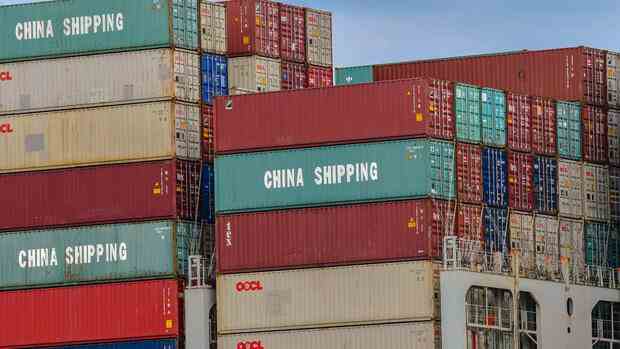The World Trade Organization (WTO) argues that trade is a positive force for climate and part of the solution for a low-carbon, resilient and just transition.
(Photo: imago images/Winfried Rothermel)
The COP27 climate summit ended in contention over how quickly the world’s countries need to phase out fossil fuels. The result was a vague statement that rich countries should compensate poorer ones for climate damage. China agreed to resume climate talks with the US.
While climate diplomacy is riddled with geopolitical tensions, there are bright spots. The US and China want to dominate the cleantech market, where processes can increase the efficiency or productivity of something – while reducing emissions at the same time. Countries compete for influence by supporting green projects in poorer countries. But many fundamentally question whether free world trade is compatible with green politics.
In essence, international trade is driven by a complex mix of countries’ relative advantages and the exchange of differentiated products in the same industries. For example, Sweden exports and imports passenger cars and components for the automotive industry to and from Germany.
Market competition and sustainability demands from governments and consumers give companies incentives to use cleaner and more efficient production technologies. The World Trade Organization (WTO) argues in its 2022 World Trade Report that trade is a positive force for climate and part of the solution for a low-carbon, resilient and just transition.
Top jobs of the day
Find the best jobs now and
be notified by email.
International trade itself causes emissions. Studies show that the international transport of goods has negative effects. But trade and trade policies can accelerate the spread of cutting-edge technologies and best practices and stimulate further innovation, while creating tomorrow’s jobs.
>> Read here: G7 countries set up “climate club”
Lena Sellgren is Chief Economist at Business Sweden.
(Photo: Business Sweden)
In addition, trade is essential to ensure that clean energy investments can reach their full potential and impact, at the lowest possible cost and where it is most needed.
International trade and climate protection measures are not contradictory
The positive effects on poverty reduction and global prosperity and the resulting spread of climate-friendly technologies far outweigh the emissions generated during transport. International trade and sensible climate protection measures are therefore not contradictory.
Decarbonization costs money. Free trade increases income and wealth, thereby setting the stage for the decarbonization of the global economy, although the direct impact on emissions may be unclear.
The more we follow the principles of responsible commerce to generate income, the faster we can transform the industries we depend on to achieve a net-zero society in time.
More: German Industry in Crisis – Three Scenarios for the Future
